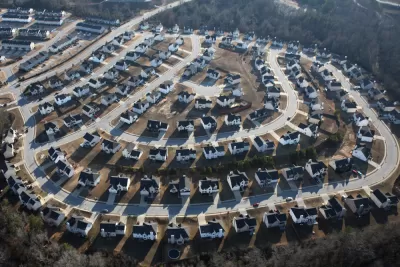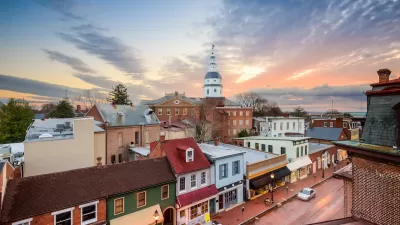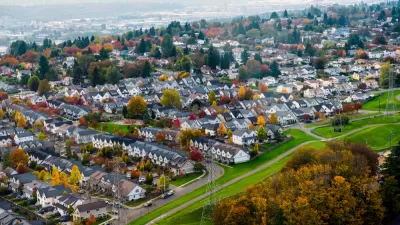Government's pro-sprawl and anti-density policies often create problems that justify more of the same.

The world of planning is full of vicious circles: government creates a problem, and then advocates of the status quo use the problem as an excuse to avoid doing anything about the problem.
For example, government has essentially generated automobile traffic through a wide variety of policies that encouraged driving and discouraged other forms of transportation. For example, government used highways to open up suburbs for development, and then zoned those suburbs for densities too low to support public transit. Yet when a landowner or developer proposes to increase density, its neighbors claim that the density will increase traffic. But in fact, keeping densities low will typically mean more automobile travel, which means more traffic. In other words, government creates the traffic problem by automobile-oriented policies, and then uses the traffic problem as an excuse not to change those policies. We are caught in a vicious circle: low density helps to create high levels of auto traffic, which in turn creates political support for low density.
Another argument against making existing places more dense is the claim that building new housing won't lower housing prices. Of course, orthodox economic theory will tell you this claim is wrong because of the magic of filtering: if you build new housing for the rich, less rich people will take the housing spaces they vacate. One counterargument claims that filtering doesn't work in expensive cities, because even older housing is monopolized by the affluent. But the reason this is true is that government has prevented filtering* from working by creating an artificial shortage of housing through zoning that limits the number of housing units everywhere. In such a situation, filtering works in reverse: people priced out of the most desirable housing or neighborhoods move to slightly less desirable housing or neighborhoods. As a result, once-affordable neighborhoods become expensive, and the poor have no place to live. When this happens, the governmental response is rarely to permit more housing: as housing becomes more expensive, a frequent political response is to blame homebuilders for high housing prices, and to enact measures that discourage housing construction. In other words, government creates the problem of housing scarcity, and then uses the problem as an excuse to regulate more, thus creating even more scarcity and justifying even more regulation.
Vicious circles are not limited to housing policy: for example, when government builds or widens a city-to-suburb highway, the most common reason for the decision is that it will reduce traffic congestion. But if the road spurs growth in the suburb, it will increase traffic congestion in that suburb. In turn, this congestion justifies the construction of even more new or widened roads. In other words, government created the congestion problem by opening up the suburbs for development, and then uses the resulting congestion as an excuse to build even more roads.
*It could be argued that new housing does not create filtering, because new housing merely leads to new demand for such housing. I have responded to that argument in an earlier post.

Alabama: Trump Terminates Settlements for Black Communities Harmed By Raw Sewage
Trump deemed the landmark civil rights agreement “illegal DEI and environmental justice policy.”

Study: Maui’s Plan to Convert Vacation Rentals to Long-Term Housing Could Cause Nearly $1 Billion Economic Loss
The plan would reduce visitor accommodation by 25% resulting in 1,900 jobs lost.

Planetizen Federal Action Tracker
A weekly monitor of how Trump’s orders and actions are impacting planners and planning in America.

Wind Energy on the Rise Despite Federal Policy Reversal
The Trump administration is revoking federal support for renewable energy, but demand for new projects continues unabated.

Passengers Flock to Caltrain After Electrification
The new electric trains are running faster and more reliably, leading to strong ridership growth on the Bay Area rail system.

Texas Churches Rally Behind ‘Yes in God’s Back Yard’ Legislation
Religious leaders want the state to reduce zoning regulations to streamline leasing church-owned land to housing developers.
Urban Design for Planners 1: Software Tools
This six-course series explores essential urban design concepts using open source software and equips planners with the tools they need to participate fully in the urban design process.
Planning for Universal Design
Learn the tools for implementing Universal Design in planning regulations.
Caltrans
Smith Gee Studio
Institute for Housing and Urban Development Studies (IHS)
City of Grandview
Harvard GSD Executive Education
Toledo-Lucas County Plan Commissions
Salt Lake City
NYU Wagner Graduate School of Public Service






























